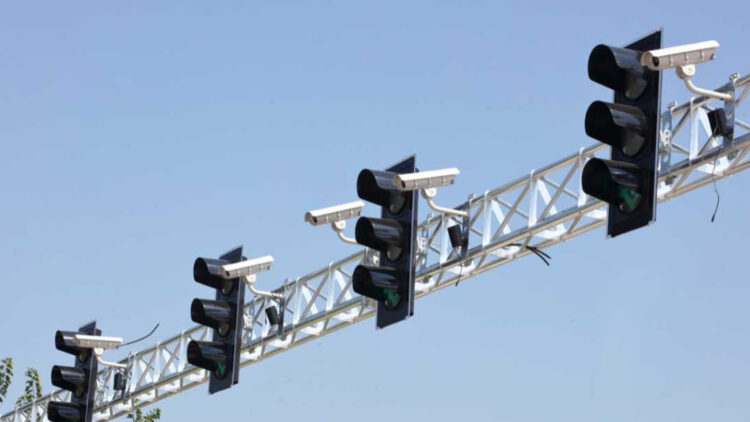In the city of Milwaukee, in the state of Wisconsin, there is a new proposition being discussed. And this law will be looking to make the streets more safe: the Safe Roads Save Lives Act. This initiative, has been presented by the senator Dora Drake, who proposes to install traffic cameras to detect common infractions: speeding excess and passing red lights. If it’s approved, Milwaukee would be the first city of Wisconsin to use this type of technology to apply automatic fines.
The project has started a whole debate about who thinks the cameras could save lives and who’s afraid the automatic fines will affect citizens privacy or even reproduce racial bias.
What the Safe Roads Save Lives Act proposes
The program aims to reduce traffic accidents with a automated vigilance system. According to the proposal, the traffic cameras will fine those who exceed the speed limit in 15 miles per hour or more, and also those who cross a red light.
The penalty fees will go from $20 to $100, depending on how severe the infractions is. If approved, the program will be in trial for 5 years. After that, the state Congress would evaluate if it’s effective.
Right now, Wisconsin forbids using this type of cameras, but the increase of accidents and deaths have taken the state to reconsider the ban.
Only in 2025, 48 individuals died on a traffic accident in Milwaukee, a figure that’s creating concern. For the senator, Dora Drake, co-author of the proposal, this technology can be an important tool, because it doesn’t only helps reduce “a culture of reckless driving,” but it also frees up work for the police, she explained.
Support and criticism about the program
Those who defend the project believe that cameras can help reduce accidents and create a new driving culture that’s more responsible. The law would allow to put up to 5 traffic cameras in each one of the 15 districts from Milwaukee, which means approximately 75 cameras around the whole city. The chosen point would be elected according to accident data and areas with higher risks.
However, not everyone agrees with the proposal; some people doubt cameras can stop someone who’s decided to just go fast or skip a traffic light. Besides, there are others who are afraid of privacy; the cameras will be filming drivers, and in some cases, the passengers too.
Another point for this debate is the possible racial bias. In other cities of the United States, it has been observed that Afro-American and Latino drivers are receiving more fines. In Milwaukee, critics fear this might become a pattern.
On the other hand, defenders agree that the data will only be used only for legal purposes and that the main goal is to safe lives not to survey the citizens. For some residents, a $100 fine doesn’t seem much when you compare it to loosing a life.
The legislative path
The Safe Roads Save Lives Act has to go first trough the Committee of Transport and Local Government before been approved completely. But if everything goes as planned, traffic cameras will start working in Milwaukee in 2026.
Meanwhile, the debate it’s still open to discussion. Some citizen are already celebrating the initiative of reducing tragedies, while other worry that it can take a turn and affect privacy.
It would be new for Milwaukee, but the truth is that many other cities are already implementing this type of solution, or reinforcing the system with higher speed fines, changes on speed limits, and banning the use of phones while behind the wheel. Traffic safety has become an important issue in the U.S. this last year, and the whole country seems to be working find a solution.

